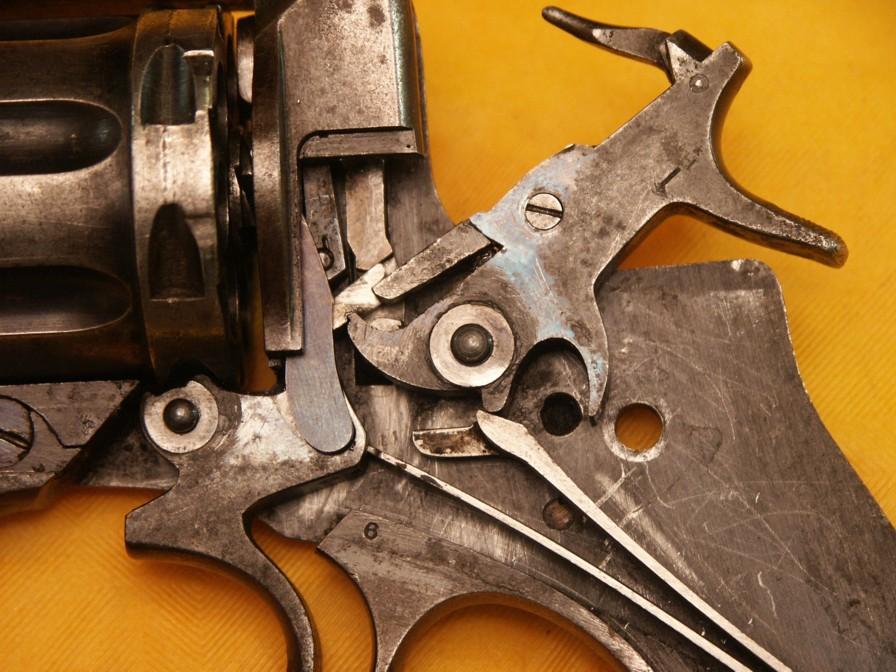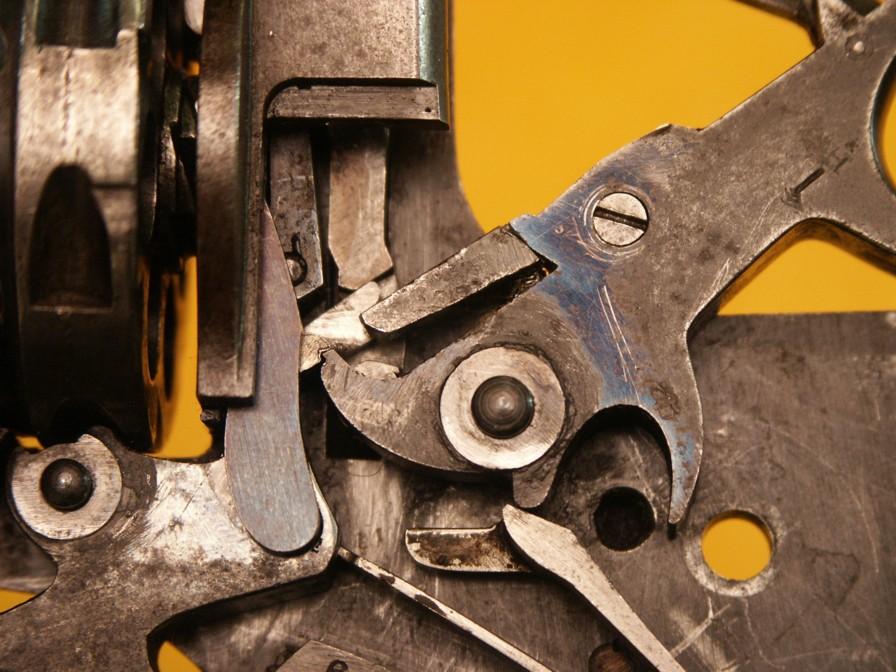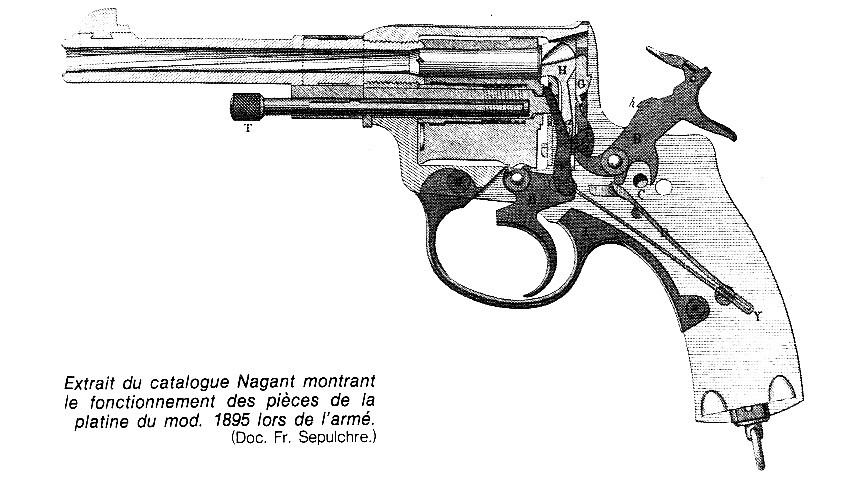Some of the most beautiful work of this craftsman, and many others, are in this book “Liège Gunmakers through their Work. 1800 - 1950”.
For more detail see: LIEGE GUNMAKERS
Nagant M.1895
The M.1895 of the Russian contract
The
contract concluded between the manufacturer L. NAGANT and the Russian Government
stipulated among other things that NAGANT had to supply, before production in
Russia began, 20,000 M.1895 revolvers. These revolvers had to be delivered
within 3 years (1896-1898).
In
principle, all M.1895 revolvers supplied by NAGANT had a single action
mechanism: they were intended for the troops of various units.
The marks
The
letter */B on the frame, the barrel, the cylinder and the firing pin: inspection
hallmark of a NAGANT factory inspector.
The
letter */B and the Peron (little step) of Liège : mark as proof of inspection on
the right on the frame, between the cylinder and the barrel.
The
letters */B and crown/R mark of the rifled barrel on the barrel, right side.
The
letter */B and the mark ELG /* in a crowned oval : acceptance mark after 1893 on
the rear edge of the cylinder.
The
letter */B and the Peron of Liège : mark on the hammer, left side.
As a
distinctive sign of the M.1895 of the Russian contract, there is a letter N
(script) as a final inspection mark by NAGANT on the frame on the right, in
front of the cylinder, and on some main parts.
As
Russian marks, there is the mark of the acceptance commission, a double-headed
eagle/II (frame on the right, above the grip) and again the K lying punch (Качество
съемки)
as proof of the accuracy of the weapon. These models bear the complete serial
numbers on almost all the main elements of the weapon.
All
M.1895 always bear the manufacturer's mark on the frame, left side. In the case
of the Russian contract models, it is L. NAGANT Breveté, surmounted by the date
of manufacture (1896-1897 or 1898); the serial numbers, in this specific case
the number must be between 1 and 20,000.
Given the
above, the revolver number 15013 below is one of the rare M.1895 examples of the
Russian contract that still exists. It is true that the Russian marks have
disappeared. Which is not surprising given their long service. It is not
excluded that the Russian marks were removed when these revolvers, introduced
during the era of the Tsar, remained in service after the revolution of 1917, or
that some marks disappeared during successive polishing.
Mat
Hammer down, cylinder back
Hammer raised, cylinder forward (Gas seal)
Civilian M.1895
In
parallel with the production of the M.1895 revolvers that were the subject of
the contract with the Russian Government, the NAGANT Establishments
manufactured, during the same period (mainly from 1898) revolvers for the
civilian market. Their number is estimated at around 50,000 examples.
Russian
officers, who had to obtain their revolvers at their own expense, had the
possibility of purchasing civilian M.1895s from NAGANT. These weapons all had a
double-action mechanism, a technique imposed on officers.
These
M.1895s carried by officers were not provided with a specific marking, so that
it is currently (practically) impossible to recognize a Russian officer's NAGANT
revolver.
The
markings of the civilian M.1895 NAGANT are, with a few details, the same as
those of the Russian contract. Serial numbers are not on many pieces, and there
is an additional mark "lion/P V" (smokeless powder proof) on the barrel, on the
right.
On
approximately the first 20,000 examples, the serial number (frame on the left)
is preceded by a capital letter "E", not yet identified. Some American
collectors see this as an indication for "Export", personally I see it rather as
a paraphe (E/C, C/E for example) as a mark of control or reception.
Mat
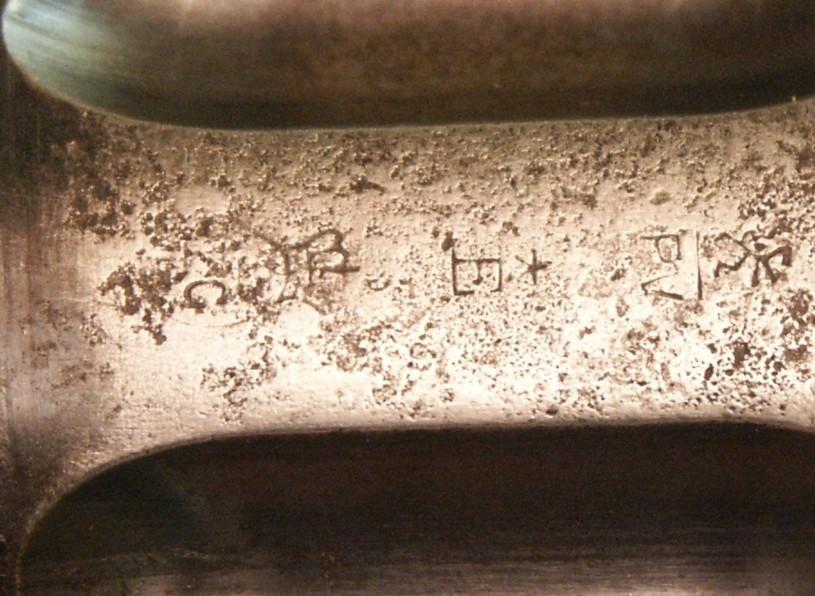
Différences entre les deux revolvers
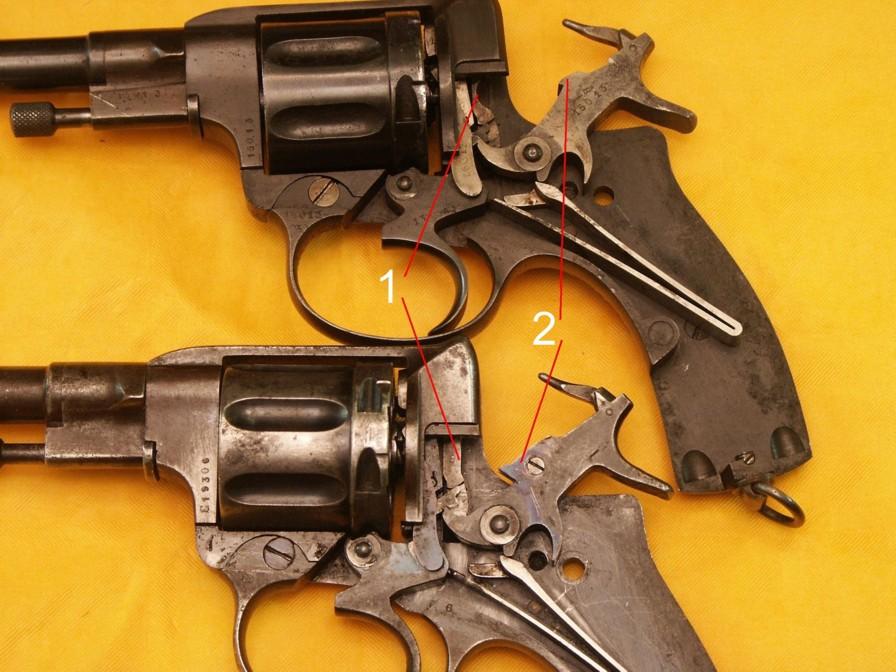
Single action
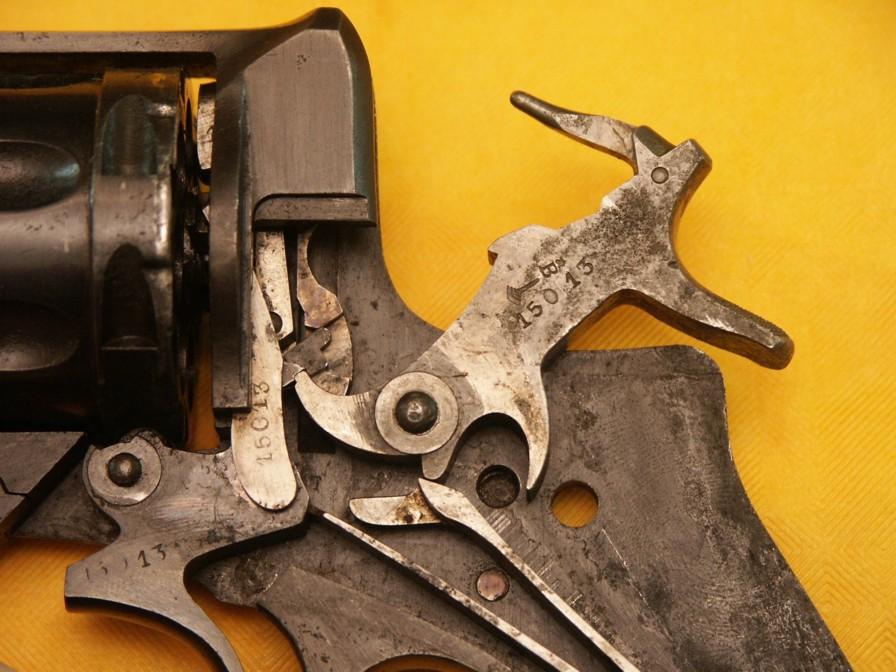
Double action
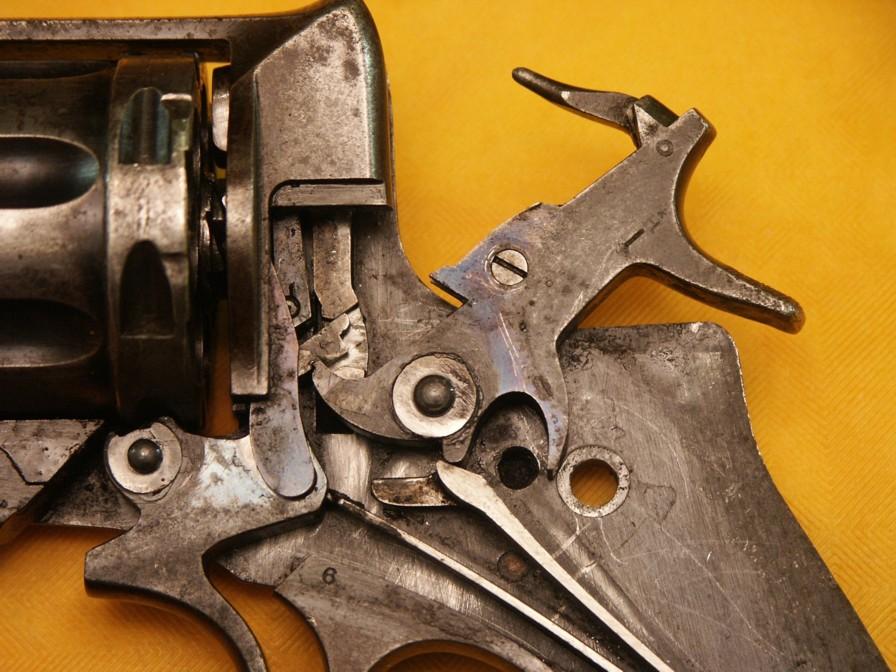
And here it is with the new chin made by Marcel
